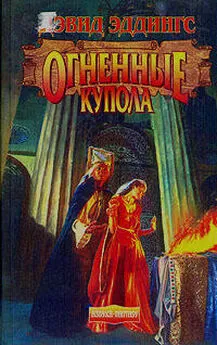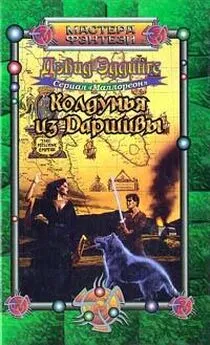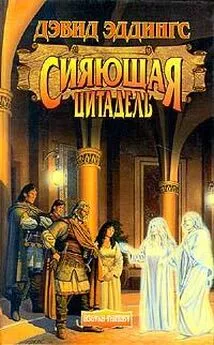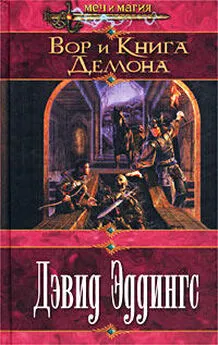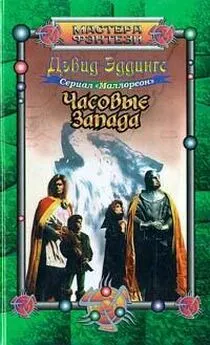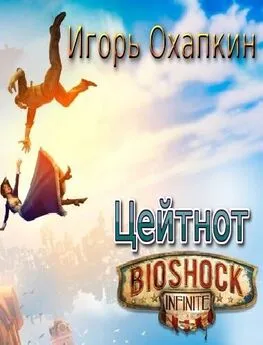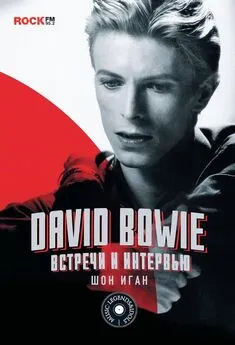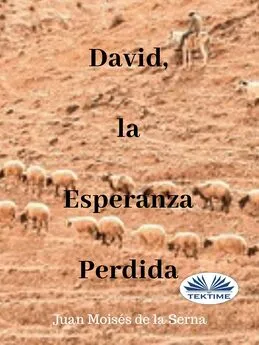David Wallace - Infinite jest
- Название:Infinite jest
- Автор:
- Жанр:
- Издательство:Back Bay Books
- Год:2006
- ISBN:нет данных
- Рейтинг:
- Избранное:Добавить в избранное
-
Отзывы:
-
Ваша оценка:
David Wallace - Infinite jest краткое содержание
Infinite Jest is the name of a movie said to be so entertaining that anyone who watches it loses all desire to do anything but watch. People die happily, viewing it in endless repetition. The novel Infinite Jest is the story of this addictive entertainment, and in particular how it affects a Boston halfway house for recovering addicts and a nearby tennis academy, whose students have many budding addictions of their own. As the novel unfolds, various individuals, organisations, and governments vie to obtain the master copy of Infinite Jest for their own ends, and the denizens of the tennis school and halfway house are caught up in increasingly desperate efforts to control the movie — as is a cast including burglars, transvestite muggers, scam artists, medical professionals, pro football stars, bookies, drug addicts both active and recovering, film students, political assassins, and one of the most endearingly messed-up families ever captured in a novel.
On this outrageous frame hangs an exploration of essential questions about what entertainment is, and why it has come to so dominate our lives; about how our desire for entertainment interacts with our need to connect with other humans; and about what the pleasures we choose say about who we are. Equal parts philosophical quest and screwball comedy, Infinite Jest bends every rule of fiction without sacrificing for a moment its own entertainment value. The huge cast and multilevel narrative serve a story that accelerates to a breathtaking, heartbreaking, unfogettable conclusion. It is an exuberant, uniquely American exploration of the passions that make us human and one of those rare books that renew the very idea of what a novel can do.
Infinite jest - читать онлайн бесплатно полную версию (весь текст целиком)
Интервал:
Закладка:
Hal has never actually seen projectile-weeping before. Bain’s tears are actually exiting his eyes and projecting outward several cm. before starting to fall. His facial expression is the scrunched spread one of a small child’s total woe, his neck-cords standing out and face darkening so that it looks like some sort of huge catcher’s mitt. A bright cape of mucus hangs from his upper lip, and his lower lip seems to be having some kind of epileptic fit. Hal finds the tantrum’s expression on an adult face sort of compelling. At a certain point hysterical grief becomes facially indistinguishable from hysterical mirth, it appears. Hal imagines watching Bain weep on a white beach through binoculars from the balcony of a cool dim Aruban hotel room.
‘He’s not coming!’ Kevin Bain finally keens to the leader.
Harv the leader nods, scratching an eyebrow, and confirms that that seems to be the case. He pretends to stroke his imperial in puzzlement and asks rhetorically what might be the problem, why mild-faced Jim isn’t automatically coming when called.
Kevin Bain’s just about vivisecting his poor bear out of mortified frustration. He seems deeply into his Infant persona now, and Hal rather hopes these guys have procedures for getting Bain at least back to sixteen before he has to try to drive home. At some point a timpani has gotten involved in the CD’s music, and a rather saucy cornet, and the music’s finally started moving a little, toward what’s either a climax or the end of the disk.
By now various men in the group have started crying out to Kevin Bain that his Inner Infant wasn’t getting its needs met, that sitting there passively asking for nurture to get up and come to him wasn’t getting the needs met, that Kevin owed it to his Inner Infant to come up with some sort of active way to meet the Infant’s needs. Somebody shouted out ‘Honor that Infant!’ Somebody else called ‘Meet those needs!’ Hal is mentally strolling down the Appian Way in bright Eurosunlight, eating a cannoli, twirling his Dunlop racquets by the throats like six-shooters, enjoying the sunshine and cranial silence and a normal salivary flow.
Pretty soon the men’s supportive exhortations have distilled into everybody in the room except Harv, Jim and Hal chanting ‘Meet Those Needs! Meet Those Needs!’ in the same male-crowd-exhortative meter as ‘Hold That Line!’ or ‘Block That Kick!’
Kevin Bain wipes his nose on his sleeve and asks humongous Harv the leader what he’s supposed to do to get his Infant’s needs met if the person he’s chosen to meet those needs won’t come.
The leader has folded his hands over his belly and sat back, by this time, smiling, cross-legged, holding his tongue. His bear sits atop the protrusion of belly with its little blunt legs straight out, the way you’ll see a bear sitting on a shelf. It seems to Hal that the O 2in 32A is now getting used up at a ferocious clip. Not at all like the cool, sheep-scented breezes of Ascension Island in the South Atlantic. The men in the room are still chanting ‘Meet Those Needs!’
‘What you’re saying is I need to actively go over to Jim myself and ask him to hold me,’ Kevin Bain says, grinding at his eyes with his knuckles.
The leader smiles blandly.
‘Instead of you’re saying passively trying to get Jim to come to me,’ says Kevin Bain, whose tears have largely stopped, and whose sweat has taken on the clammy shine of true fear-sweat.
Harv emerges as one of these people who can heft one eyebrow and not the other. ‘It would take real courage and love and commitment to your Inner Infant to take the risk and go actively over to somebody that might give you what your Infant needs,’ he says quietly. The CD player has at some point shifted into an all-cello instrumental of ‘I Don’t Know (How to Love Him)’ from an old opera Lyle sometimes borrowed people’s players and listened to at night in the weight room. Lyle and Marlon Bain had been particularly tight, Hal recalls.
The trimeter of the men’s chant has reduced to a one-foot low-volume ‘Needs, Needs, Needs, Needs, Needs’ as Kevin Bain slowly and hesitantly uncrosses his legs and rises from his orange chair, turning to face Hal and the motionless guy behind him, this Jim. Bain begins to move slowly toward them with the tortured steps of a mime miming walking against a tornadic gale. Hal’s picturing himself doing a lazy backstroke in the Azores, spouting glassy water up out of his mouth in a cytological plume. He’s leaning almost out of his chair, as far as possible out of Kevin Bain’s line of transit, studying the brown suspension in the bottom of his glass. His prayer not to be recognized by a regressive Kevin Bain is the first really desperate and sincere prayer Hal can remember offering since he’d stopped wearing pajamas with feet in them.
‘Kevin?’ Harv calls softly from the front of the room. ‘Is it you moving actively toward Jim, or should it be the Infant inside you, the one with the needs?’
‘Needs, Needs, Needs,’ the bearded men are chanting, some rhythmically raising their manicured fists in the air.
Bain’s looking back and forth between Harv and Jim, chewing his finger indecisively.
‘Is this how an Infant moves towards its needs, Kevin?’ Harv says.
‘Go for it, Kevin!’ a full-bearded man calls out.
‘Let the Infant out!’
‘Let your Infant do the walking, Kev.’
So Hal’s most vivid full-color memory of the non-anti-Substance Meeting he drove fifty oversalivated clicks to by mistake will become that of his older brother’s doubles partner’s older brother down on all fours on a Dacronyl rug, crawling, hampered because one arm was holding his bear to his chest, so he sort of dipped and rose as he crawled on three limbs toward Hal and the needs-meeter behind him, Bain’s knees leaving twin pale tracks in the carpet and his head up on a wobbly neck and looking up and past Hal, his face unspeakable.
The ceiling was breathing. It bulged and receded. It swelled and settled. The room was in St. Elizabeth’s Hospital’s Trauma Wing. Whenever he looked at it, the ceiling bulged and then deflated, shiny as a lung. When Don was a massive toddler his mother had put them in a little beach house just back of the dunes off a public beach in Beverly. The place was affordable because it had a big ragged hole in the roof. Origin of hole unknown. Gately’s outsized crib had been in the beach house’s little living room, right under the hole. The guy that owned the little cottages off the dunes had stapled thick clear polyurethane sheeting across the room’s ceiling. It was an attempt to deal with the hole. The polyurethane bulged and settled in the North Shore wind and seemed like some monstrous vacuole inhaling and exhaling directly over little Gately, lying there, wide-eyed. The breathing polyurethane vacuole had seemed like it developed a character and personality as winter deepened and the winds grew worse. Gately, age like four, had regarded the vacuole as a living thing, and had named it Herman, and had been afraid of it. He couldn’t feel the right side of his upper body. He couldn’t move in any real sense of the word. The hospital room had that misty quality rooms in fevers have. Gately lay on his back. Ghostish figures materialized at the peripheries of his vision and hung around and then de-materialized. The ceiling bulged and receded. Gately’s own breath hurt his throat. His throat felt somehow raped. The blurred figure in the next bed sat up very still in bed in a sitting position and seemed to have a box on its head. Gately kept having a terrible repetitious ethnocentric dream that he was robbing the house of an Oriental and had the guy tied to a chair and was trying to blindfold him with quality mailing twine from the drawer under the Oriental’s kitchen phone. The Oriental kept being able to see around the twine and kept looking steadily at Gately and blinking inscrutably. Plus the Oriental had no nose or mouth, just a smooth expanse of lower-facial skin, and wore a silk robe and scary sandals, and had no hair on its legs.
What Gately perceived as light-cycles and events all out of normal sequence was really Gately going in and out of consciousness. Gately did not perceive this. It seemed to him more like he kept coming up for air and then being pushed below the surface of something. Once when Gately came up for air he found that resident Tiny Ewell was seated in a chair right up next to the bed. Tiny’s little slim hand was on the bed’s crib-type railing, and his chin rested on the hand, so his face was right up close. The ceiling bulged and receded. The room’s only light was what spilled in from the nighttime hall. Nurses glided down the hall and past the door in subsonic footwear. A tall and slumped ghostish figure appeared to Gately’s left, off past the blurred seated square-head boy’s bed, slumped and fluttering, appearing to rest its tailbone on the sill of the dark window. The ceiling rounded on down and then settled back flat. Gately rolled his eyes up at Ewell. Ewell had shaved off his blunt white goatee. His hair was so completely clean and white it took a faint pink cast from the pink of his scalp below. Ewell had been discoursing to him for an unknown length of time. It was Gately’s first full night in St. Elizabeth’s Hospital’s Trauma Wing. He didn’t know what night of the week it was. His circadian rhythm was the least of the personal rhythms that had been scrambled. His right side felt encased in a kind of hot cement. Also a sick throb in what he assumed was a toe. He wondered dimly about going to the bathroom, if and when. Ewell was right in the middle of speaking. Gately couldn’t tell if Ewell was whispering. Nurses glided across the doorway’s light. Their sneakers were so noiseless the nurses seemed to be on wheels. A stolid shadow of somebody in a hat was cast obliquely across the hall’s tile floor just outside the room, as if a stolid figure were seated just outside the door, against the wall, in a hat.
‘My wife’s personal term for soul is personality. As in “There’s something incorrigibly dark in your personality, Eldred Ewell, and Dewars brings it out.” ‘
The hall floor was pretty definitely white tile, with a cloudy overwaxed shine in the bright fluorescence out there. Some kind of red or pink stripe ran down the center of the hall. Gately couldn’t tell if Tiny Ewell thought he was awake or unconscious or what.
‘It was in the fall term of third grade as a child that I found myself fallen in with the bad element. They were a group of tough blue-collar Irish lads bussed in from the East Watertown projects. Runny noses, home-cut hair, frayed cuffs, quick with their fists, sports-mad, fond of sneaker-hockey on asphalt,’ Ewell said, ‘and yet, strangely, I, unable to do even one pull-up in the President’s Physical Fitness Test, quickly became the leader of the pack we all fell into. The blue-collar lads all seemed to admire me for attributes that were not clear. We formed a sort of club. Our uniform was a gray skallycap. Our clubhouse was the dugout of a Little League diamond that had fallen into disuse. Our club was called the Money-Stealers’ Club. At my suggestion we went with a descriptive name as opposed to euphemistic. The name was mine. The Irish lads acquiesced. They viewed me as the brains of the operation. I held them in a kind of thrall. This was due in large part to my capacity for rhetoric. Even the toughest and most brutish Irish lad respects a gilded tongue. Our club was formed for the express purpose of undertaking a bunko operation. We went around to people’s homes after school, ringing the doorbell and soliciting donations for Project Hope Youth Hockey. There was no such organization. Our donation-receptacle was a Chock Full O’ Nuts can with PROJECT HOPE YOUTH HOCKEY written on a strip of masking tape wrapped around the can. The lad who made the receptacle had spelled PROJECT with a G in the first draft. I ridiculed him for the error, and the whole club pointed at him and laughed.
Читать дальшеИнтервал:
Закладка:


